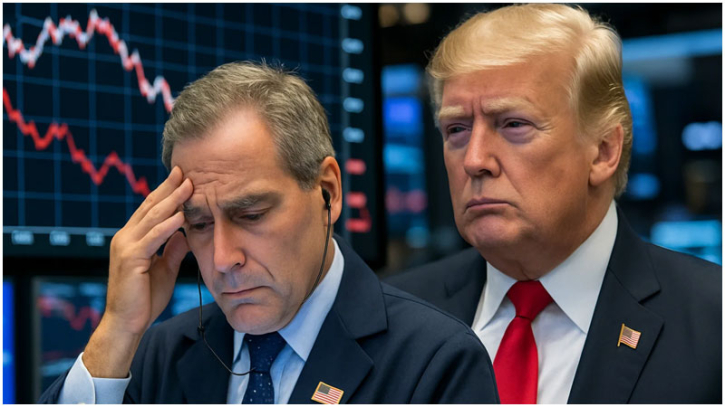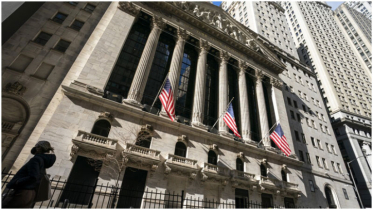Stocks waver as traders eye Trump's next move in trade standoff

Global stock markets saw choppy trading on Tuesday as investors awaited further developments in former President Donald Trump’s escalating trade tensions, while the Japanese yen strengthened following signals of possible interest rate hikes from Japan’s central bank.
With U.S. markets shut for a public holiday, trading volumes were thin and market direction was subdued. Nonetheless, investor nerves remained on edge after Trump’s threat to impose 50% tariffs on European Union imports, a move that has been temporarily delayed but has reignited market volatility.
Analysts pointed to the uncertainty surrounding Trump’s policy maneuvers—particularly the abrupt tariff announcements and plans to extend tax cuts—as a key factor undermining confidence in the U.S. economy. These concerns are also contributing to higher Treasury yields.
“Markets are once again dancing on hot coals, front-running White House mood swings while dodging macro landmines,” said Stephen Innes of SPI Asset Management. “With yields dangling like anvils and tariff threats swinging like wrecking balls, the only thing certain is that the music won’t stop—until it does. Traders, keep your running shoes on.”
European equities rebounded on the news of the tariff delay and following European Commission President Ursula von der Leyen’s commitment to accelerate negotiations on a trade agreement with Washington. In contrast, Asian markets delivered a mixed performance.
Gains were seen in Hong Kong, Sydney, Singapore, Jakarta, Manila, and Wellington, while Tokyo, Shanghai, Seoul, and Taipei ended slightly lower.
Meanwhile, the yen strengthened against the dollar after Bank of Japan Governor Kazuo Ueda indicated that the central bank could continue raising borrowing costs if the economy performs as expected. Speaking at a conference in Tokyo, Ueda stated, “We will adjust the degree of monetary easing as needed.”
His comments follow recent cuts to Japan’s growth forecasts, prompted in part by the renewed threat of U.S. tariffs. “In light of growing uncertainties, particularly those related to trade policy, we have recently revised down our economic and inflation outlook,” Ueda said, although he maintained that inflation would gradually return to the bank’s 2% target.
The yen advanced to 142.12 per dollar. Analysts noted increasing pressure on the U.S. currency amid fiscal concerns and economic headwinds.
“In a way, all roads have led to a weaker dollar,” said Chris Weston of Pepperstone. “Higher perceived U.S. deficits have raised concerns about increased future Treasury issuance, pushing up term premiums and prompting investors to move away from the dollar. Concerns about softer U.S. growth in the second half of 2025 are also contributing to dollar selling.”
Market participants are also awaiting the minutes from the Federal Reserve’s May policy meeting, which could offer insight into the central bank’s thinking amid the trade tensions. Additionally, the Fed’s preferred inflation measure, due later this week, is being closely watched for further signals on monetary policy direction.
Key figures at around 0230 GMT
Tokyo - Nikkei 225: DOWN 0.2% at 37,440.32 (break)
Hong Kong - Hang Seng Index: UP 0.1% at 23315.99
Shanghai - Composite: DOWN 0.1% at 3,344.95
Dollar/yen: DOWN at 142.12 yen from 142.81 yen on Monday
Euro/dollar: UP at $1.1405 from $1.1382
Pound/dollar: UP at $1.3585 from $1.3563
Euro/pound: UP at 83.95 pence from 83.91 pence
West Texas Intermediate: DOWN 0.3% at $61.36 per barrel
Brent North Sea Crude: DOWN 0.2% at $64.60 per barrel
New York - Dow: Closed for a holiday
London - FTSE 100: Closed for a holiday
.png)




